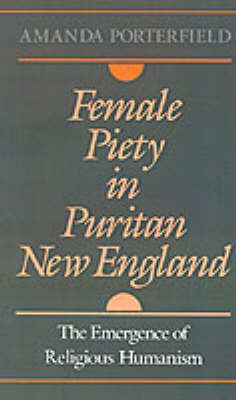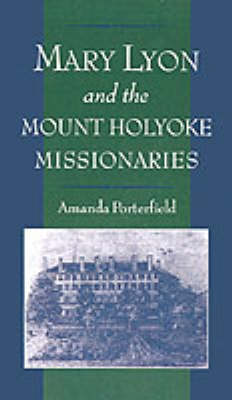Religion in America
2 total works
Amanda Porterfield documents the claim that for Puritan men and women alike the ideals of selfhood were conveyed by female images. Constructed largely by men, Porterfield argues, these female images taught self-control, shaped pious ideals, and also established the standards against which the moral character of actual women was measured. Porterfield's work reflects a synthesis of literary critical and historical methods, combining analysis of Puritan theological
writings with detailed examinations of historical records of changing patterns of church membership and domestic life.
writings with detailed examinations of historical records of changing patterns of church membership and domestic life.
American women played in important part in Protestant foreign missionary work from its early days at the beginning of the nineteenth century, enabling them not only to disseminate religious principles but also to break into public life and create expanded opportunities for themselves and other women. No institution was more closely associated with women missionaries that Mount Holyoke College. This book examines Mount Holyoke founder Mary Lyon and the missionary
women trained by her. Porterfield sees Lyon and her students as representative of dominant trends in American missionary thought before the Civil War. She focuses on how their activities in several parts of the world-particularly northwest Persia, Maharashtra in western India, and Natal in southeast
Africa-and shows that while their primary goals remained elusive, antebellum missionary women made major contributions to cultural change and the development of new cultures.
women trained by her. Porterfield sees Lyon and her students as representative of dominant trends in American missionary thought before the Civil War. She focuses on how their activities in several parts of the world-particularly northwest Persia, Maharashtra in western India, and Natal in southeast
Africa-and shows that while their primary goals remained elusive, antebellum missionary women made major contributions to cultural change and the development of new cultures.

